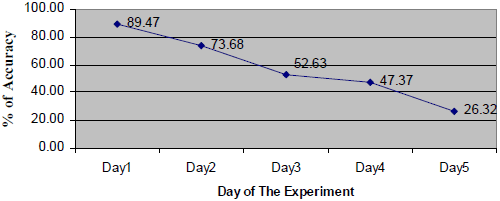Authors
V. R. Vemula, David Ball, & Simon Thorne
Abstract
In this paper, we report some on-going focused research, but are further keen to set it in the context of a proposed bigger picture, as follows. There is a certain depressing pattern about the attitude of industry to spreadsheet error research and a certain pattern about conferences highlighting these issues. Is it not high time to move on from measuring spreadsheet errors to developing an armory of disciplines and controls?
In short, we propose the need to rigorously lay the foundations of a spreadsheet engineering discipline. Clearly, multiple research teams would be required to tackle such a big task. This suggests the need for both national and international collaborative research, since any given group can only address a small segment of the whole. There are already a small number of examples of such on-going international collaborative research.
Having established the need for a directed research effort, the rest of the paper then attempts to act as an exemplar in demonstrating and applying this focus. With regard to one such of research, in a recent paper, Panko (2005) stated that: "...group development and testing appear to be promising areas to pursue".
Of particular interest to us are some gaps in the published research record on techniques to reduce errors. We further report on the topics: techniques for cross-checking, time constraints effects, and some aspects of developer perception.
Sample

The aim of this experiment was to determine if time constraints imposed on completing spreadsheet tasks have any impact on the accuracy.
This experiment consists of 5 phases, each of which needed a day to be carried out.
The results of this experiment are that time has a significant impact on the quality of spreadsheets. As the assigned time limit decreases, the accuracy drops proportionally.
We conclude that while most organisations require their employees to get more work done in less time in order to cut costs, these restrictions would only result in poor quality of spreadsheets.
Publication
2006, EuSpRIG
